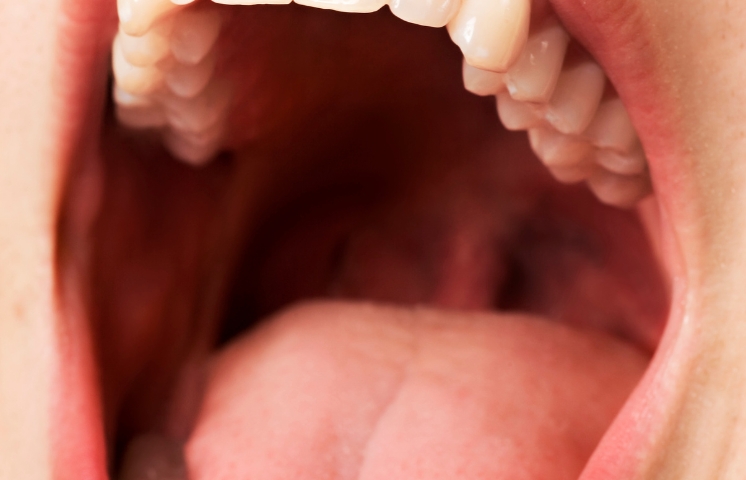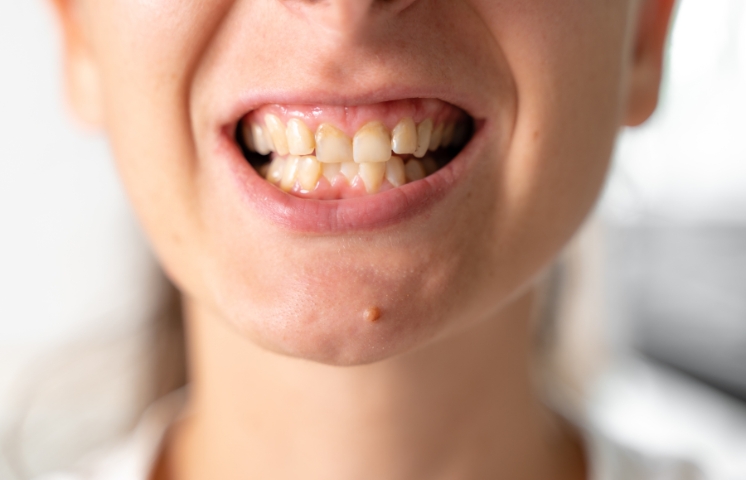We are not a registered Medicare/Medicaid Provider

Saliva plays a key role in protecting teeth after savoring your favorite French fries, chicken nuggets, or grilled chicken sandwich. It moistens and breaks down food substances; washes away food particles, and helps you swallow. If you produce less saliva, it will impact your oral health. Hence, the discussion of the adverse effects of dry mouth on oral health is particularly pertinent in today’s society, given the prevalence of such food choices we stick to. The blog discusses oral health conditions that occur when your mouth produces less saliva.
What Is Dry Mouth?
Dry mouth is a condition characterized by a reduction in saliva production. It can happen if you are nervous and stressed. When there is a shortage of saliva, it will cause you problems swallowing your food.
Additionally, dry mouth significantly increases the risk of fungal infection. If you have a dry mouth, you should see a dentist Haymarket and discuss it to prevent further complications.
However, here are some causes of dry mouth.
1. Medicine’s Side Effects
Many medicines can impact the production and flow of saliva in your mouth. For example, taking medication for high blood pressure, depression, and blood control issues may reduce saliva flow.
2. Chemotherapy
If an individual is undergoing chemotherapy, it can cause the saliva to become thicker, resulting in a dry mouth.
3. Neurological Issues
If one is suffering neurological issues like strokes, Alzheimer’s disease, or even instances of nerve damage, then there is a high chance of producing less saliva.
Although the causes of xerostomia may be multiple, they have significant health repercussions, most notably affecting oral health. Hence, the best thing to do is to be alert and contact a dentist.
Effects Of Dry Mouth On Oral Health
Dry mouth, resulting from the medical conditions mentioned above or for any other reason, affects an individual’s health, particularly oral health. Here is how dry mouth impacts one’s oral health:
1. Bad Breath
Saliva, as we mentioned above, cleanses and washes away food substances that cause bad breath.
However, when saliva production is low, the bacteria are not washed away, leading to persistent bad breath.
2. Gum Disease
The most serious impact of dry mouth is gum diseas. When saliva is unable to wash away the bacteria, it results in the formation of plaque on the teeth.
Dry mouth can lead to gingivitis, which, if it persists for a long time, can escalate to periodontitis, characterized by swollen and bleeding gums.
3. Oral Infections
Saliva contains antibodies and enzymes that shield your mouth from developing infections.
However, conditions like dry mouth weaken the body’s natural defense against fungi and bacteria, resulting in diseases such as oral thrush and ulcers.
4. Worsens Dental Restoration
Dry mouth can impact dental restorations, such as bridges, crowns, and dentures. Saliva is a natural way to keep these procedures well-maintained.
In addition, it keeps them from becoming loose and increases irritation. A dry mouth may compromise the effectiveness of these procedures.
The best way to combat dry mouth is to hydrate yourself throughout the day. Even dentists may recommend over-the-counter saliva substitutes to help you produce enough saliva.
Maintaining good hygiene, such as brushing twice daily, also helps prevent tooth decay. If you are experiencing dry mouth, see your dentist for advice and recommendations.



